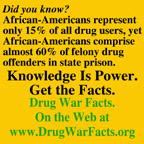|
|
 |
 |
 |
 |
register |
bbs |
search |
rss |
faq |
about
|
 |
 |
meet up |
add to del.icio.us |
digg it
|
 |

|
HR695: The Security and Freedom Through Encryption
THE CDA DISASTER NETWORK
September 9, 1997
Although the Supreme Court has effectively neutered the CDA, other
challenges to free speech in cyberspace remain. Today, the stuggle for
free speech has become closely intertwined with the fight for privacy.
Right now, Congress is considering some important encryption legislation
that could have a dramatic impact on digital communication in the 21st
century.
This week, SAFE (HR 695), legislation designed to relax government
restrictions of data scrambling technology, is scheduled to come up for a
vote in the House National Security (9/9/97) and Intelligence Committees
(9/11/97).
As comrade Declan McCullagh from Time Magazine has put it, "This week will
be a crucial one in deciding how much privacy Americans will enjoy in the
digital age. This proposal is //at least// as important and newsworthy as
the original Clipper Chip was, and ranks up there with the Communications
Decency Act."
He's not kidding. The following Action Alert will fill you in on current
events and suggest some simple things you can do to stay informed and get
involved.
As the alert points out, with one phone call you can do "more to help fight
for privacy and security on the Internet in 5 minutes than most people do
in a year!"
Work the network!
--Todd Lappin-->
Associate Editor
WIRED Magazine
----------------------------------------------------------------------
Subject: Congress near a vote on Net privacy legislation; call now!
-------------------------------------------------------------------
___ _ _____ ____ _____ _
/ _ \| | | ____| _ \_ _| | Congress is about to vote on privacy and
| |_| | | | _| | |_) || | | | security on the Net. Call your member of
| _ | |___| |___| _ < | | |_| Congress before September 17, 1997
|_| |_|_____|_____|_| \_\|_| (_) Posted September 8, 1997
Please forward where appropriate until September 17, 1997
This alert brought to you by
The Voters Telecommunications Watch, The Center for Democracy & Technology,
the Electronic Frontier Foundation, and Wired Magazine
_____________________________________________________________________________
Table of Contents
What's Happening Right Now
What You Can Do To Help Privacy And Security On The Internet
Background On SAFE (HR. 695)
About This Alert
_____________________________________________________________________________
WHAT'S HAPPENING RIGHT NOW
During the next two weeks two Congressional committees (the House
Intelligence and National Security committees) will vote on the
"Security and Freedom Through Encryption Act" (SAFE, HR 695) --
important legislation designed to protect privacy and security on the
Internet by encouraging the widespread availability of strong,
easy-to-use encryption technologies.
Opponents of the bill include the FBI, NSA and members of the Clinton
Administration. They seek to force all Americans to provide guaranteed
law enforcement access to private online communications by imposing
"key recovery" systems inside the U.S., and they have a great deal of support
in Congress. It is possible that Congress could amend SAFE in a way that
undermines privacy and allows the government broad new surveillance
power.
This is a critical moment in the fight for privacy and security on the
Internet.
Your member of Congress needs to know that you care about privacy and
security on the Internet. Please take a moment to read the
instructions below or details on how you can help protect privacy and
security online. A summary of the bill and pointers to additional
information are also included below.
Five minutes of your time will go a long way.
________________________________________________________________________
WHAT YOU CAN DO NOW
Please call your Representative. THIS WEEK to express your support for
the SAFE and urge them to oppose any amendments to impose key recovery
or modify the export relief provisions.
INSTRUCTIONS:
IF YOU DON'T KNOW WHO YOUR MEMBER OF CONGRESS IS....
1. Go to http://www.crypto.com/member/ and enter your zip code to find your
member of Congress and all the information needed for contacting them.
or
IF YOU KNOW WHO YOUR MEMBER OF CONGRESS IS....
1. Pick up the phone and call 202-225-3121, ask for you Representative.
2. Ask for the staffer that handles the encryption issue.
3. Urge your Rep. to support SAFE (HR695) and to oppose Administration
efforts to modify the bill.
Feel free to use your own words but be sure to stress the points below:
- Encryption is critical National Security by protecting sensitive data and
critical points on the National Information Infrastructure like the Air
Traffic Control System and the power grid from attacks.
- SAFE will encourage the widespread availability of strong, easy to use
encryption.
- SAFE will help foil hackers, terrorists, and foreign spies from obtaining
unauthorized access to personal, business, and government communications
and data.
- Key escrow or key recovery systems will hurt national security by
creating new points of vulnerability and new targets for hackers and
terrorists to seek to exploit, and will not work to prevent crime.
- Key recovery comes at a grave cost to privacy and security. Why would
a criminal use an encryption product that they know the US government
holds the keys to?
4. IMPORTANT! -- PLEASE LET US KNOW HOW IT WENT!
Visit our feedback page at:
http://www.crypto.com/member/
or
<a href="http://www.crypto.com/member/">Crypto.Com feedback</a>
...and let us know how it went!
5. Please forward this alert to your friends and colleagues
who live in your congressional district.
6. Finally, relax! You have done more to help fight for privacy and
security on the Internet in 5 minutes than most people do in a year!
We appreciate your support!
________________________________________________________________________
BACKGROUND ON SAFE (HR 695)
The Security And Freedom Through Encryption Act (SAFE) seeks to protect
privacy and promote electronic commerce by liberalizing the export of
privacy-enhancing encryption technology and prohibiting the government from
obtaining guaranteed law enforcement access to private online
communications.
Specifically, the bill will:
* Prohibit the Government from imposing mandatory key-recovery or key-
escrow inside the United States
* Affirm the right of Americans to use whatever form of encryption they
choose
* Relax current export controls on encryption technologies which
currently limit the availability of strong encryption domestically and
tie the hands of the US high technology industry
The full text of SAFE and detailed background information can be found at
http://www.crypto.com/safe_bill/
A controversial provision of SAFE, which establishes new criminal penalties
for the use of encryption in the furtherance of a felony, were
substantially modified at the request of civil liberties groups field when
the bill was passed by the House Judiciary Committee in May, ensuring that
the bill will help protect your privacy and encourage the use of encryption.
The SAFE bill is sponsored by Rep. Bob Goodlatte (R-VA), Anna Eshoo
(D-CA), Zoe Lofgren (D-CA), Rick White (R-WA) and over 250 other House
members.
The Clinton Administration is unhappy with the bill, claiming it will
thwart law enforcement and undermine the administration's efforts to impose
a global "key-recovery" infrastructure. In an April 30 letter to the Courts
and Intellectual Property Subcommittee chair Rep. Howard Coble (R-NC), the
Department of Justice said:
"The bill could be read as prohibiting the United States government
from using appropriate incentives to support a key management
infrastructure and KEY RECOVERY." [emphasis added]
The Administration's "Key Recovery" program creates a back door in
encryption that would allow third parties to eavesdrop on individual's
private conversations without their permission or knowledge.
Despite its broad based support, the SAFE bill faces a tough road as it makes
its way to the full House, where a vote is possible this fall. Votes are
currently scheduled in the House National Security (9/9) and Intelligence
Committees (9/11). Be sure to visit http://www.crypto.com for the latest
news and information on the issue.
______________________________________________________________________________
ABOUT THIS ALERT
This message was brought to you by the Center for Democracy and Technology
(http://www.cdt.org), the Voters Telecommunications Watch
(http://www.vtw.org), the Electronic Frontier Foundation
(http://www.eff.org), and Wired Magazine (http://www.wired.com) who have
issued this alert jointly.
______________________________________________________________________________
end alert 09.08.97
|

|
 |
To the best of our knowledge, the text on this page may be freely reproduced and distributed.
If you have any questions about this, please check out our Copyright Policy.

totse.com certificate signatures
|
 |
 |
About | Advertise | Bad Ideas | Community | Contact Us | Copyright Policy | Drugs | Ego | Erotica
FAQ | Fringe | Link to totse.com | Search | Society | Submissions | Technology
|
 |
 |
 |
 |
|

